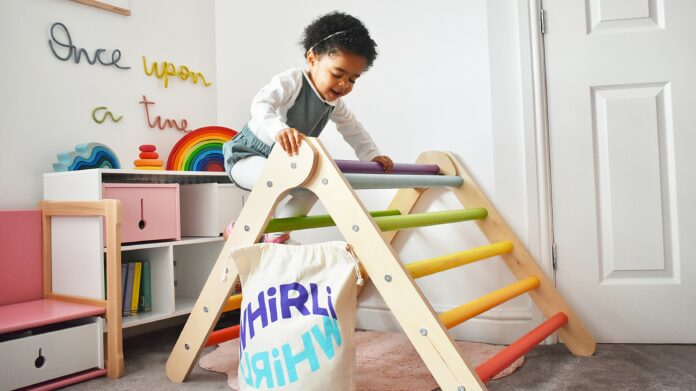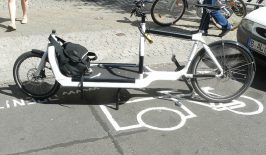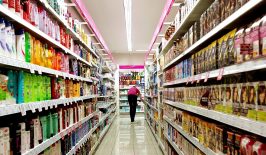Christmas has only just come and gone, but already thousands of toys and presents are likely finding their ways into drawers and cupboards, never to see the light of day again. With babies and toddlers in particular, the lifespan of some toys can be measured in days as they quickly develop and lose interest in more basic playthings. And with so many toys being produced from plastic and shipped across the globe for us to buy, it’s not a trend that’s particularly sustainable.
A UK-based startup, Whirli, has come up with an innovative way to give toys a new lease of life and prevent them from being consigned to attics across the country. Originally founded in 2018 and referred to as the “Netflix of Toys”, Whirli introduces a subscription service in which parents can rent toys for as long as they like, and exchange them for others once the child has outgrown them or moved on.
The system works like this: Different subscription plans provide access to a different amount of Whirli tokens, with each token equating to 1 GBP of value. These tokens can then be used to select toys of various values, which are then sent to the subscriber. The toys can be kept for as long as the customer likes, and if kept for over 8 months, it can be kept permanently at no extra charge.
Otherwise, subscribers can buy the toy from Whirli at a discounted price. If the child gets bored with the toy, it can be returned to Whirli and once again becomes part of the inventory. The subscriber’s tokens for that toy are then refunded and can be used to select something else. All of these functions are carried out via its proprietary technology platform which keeps track of over 50,000 toys in circulation in the UK.
Toying With the Environment? webandi
The toy industry is certainly a large one and totals around 90 billion USD per year. It’s also a plastic-heavy industry, with 90 percent of products being made from the material. In fact, according to a 2014 UN Environment Programme report, it may be the most plastic intensive consumer industry in the world. The manufacture of toys is also highly centralised in certain states, with China accounting for three-quarters of production. The result of this are lengthy supply chains that span the globe and further increase the carbon footprint of toys. All of this is further compounded by the fact many toys have a short lifespan before they are broken, forgotten or simply outgrown.
Of course, there are alternatives to plastic toys. LEGO has recently started to use sugarcane “plastic” in its products and aims to abandon regular plastic by 2030, while Mattel hopes to be using 100 recycled plastic by the same date. Meanwhile, traditional wooden toys have made a comeback, especially in the preschool age bracket. Not only are these toys seen as more environmentally friendly, they are usually more locally manufactured, robust and do not come with the health risks associated with many types of plastic.
Ultimately, however, as children age, their demand for more complex toys increases. It is hoped platforms such as Whirli can provide access to must-have toys, without the associated environmental burden and accumulated clutter. Circular economy solutions such as these are increasingly being promoted as a means to protect the Earth’s dwindling resources and reduce our growing waste problem. By 2025, it has been estimated that humans will produce 5 trillion tons of waste a year – which is around 1/36th of the world’s biomass. By using digital tools to enable more streamlined models or reuse and recycling – especially for products such as smartphones and clothing – it is hoped that this impact can be significantly reduced.
Platforms such as Whirli are particularly aimed at millenial and Gen Z consumers who are more comfortable with subscription services and increasingly concerned with sustainability and flexibility. The concept has already started to attract the attention of investors, with Whirli recently raising a 4.3 million EUR seed funding round. These new funds will be used to further improve the technology behind the platform, and conduct research into child development and learning through play.






